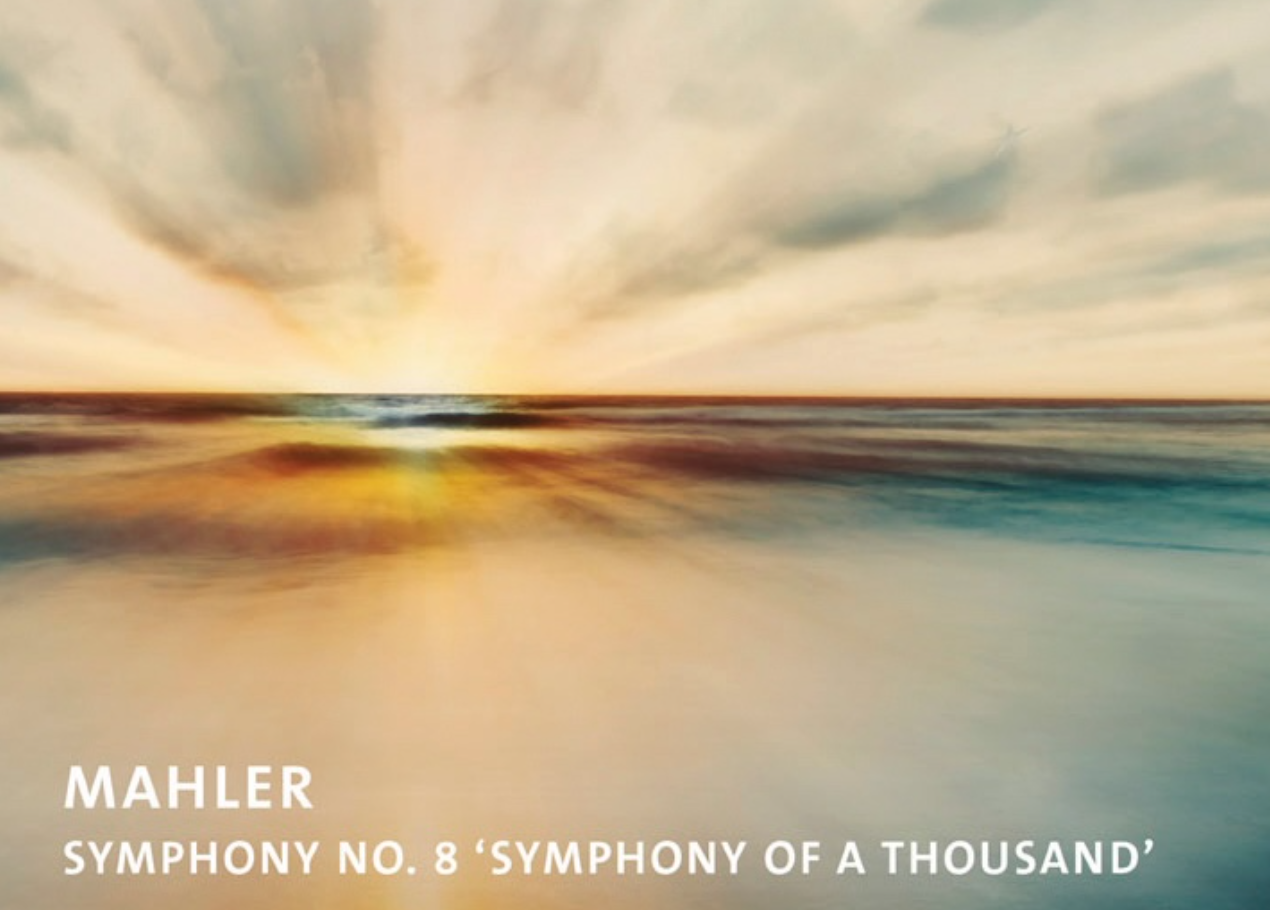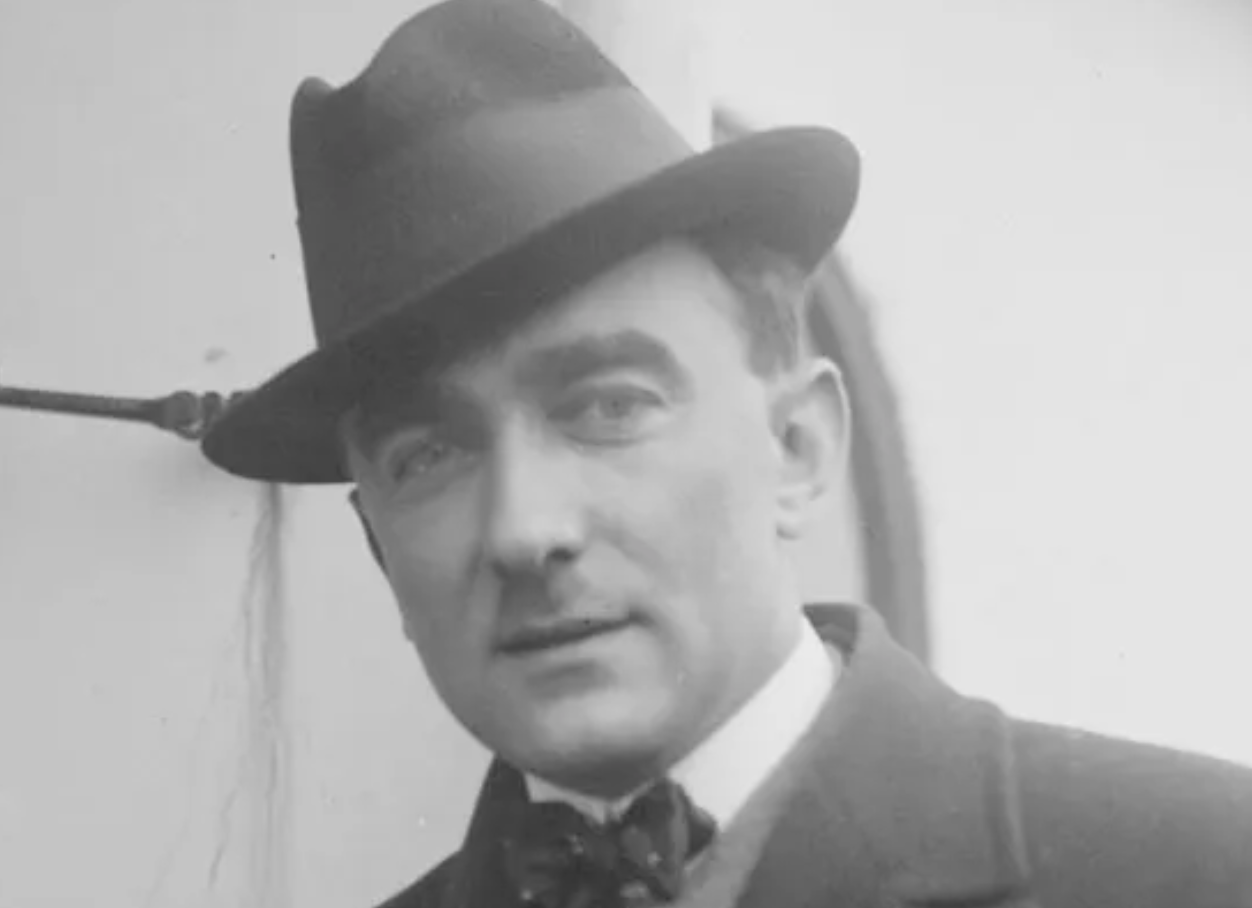Three choirs, eight starry singers and one of the largest orchestras ever put on stage: there’s a reason why Mahler’s Eighth Symphony is often called the “Symphony of a Thousand”.
From its first notes, this symphony bursts into radiant life, revealing Mahler as the true musical dramatist, effortlessly blending the human and the divine.
The form of the piece, setting the candescent medieval poem Veni creator spiritus alongside the lyrical last scene of Goethe’s Faust is in itself radical and mysterious, and at the core of the piece is a vast choir who seem to represent the whole human race in a passionate prayer for change, but Mahler imagined they stood for something even greater: “Try to imagine the whole universe beginning to ring and resound” he challenged. A challenge indeed, but as those of you who are familiar with this outstanding work know, Mahler 8 is a truly epic and mystical piece and we’re absolutely delighted to be part of that “vast choir” alongside the London Symphony Chorus, Tiffin Boys’ Choir and eight wonderful soloists, who will all be conducted by the London Philharmonic Orchestra’s principal conductor, Edward Garner, on April 26th at the Royal Festival Hall.
Despite its vast and complex nature, this great symphony was composed by Mahler in a single inspired burst at his Maiernigg villa in southern Austria in the summer of 1906 and was the last of his works that was premiered in his lifetime. Mahler had been convinced from the start of the work’s significance; in renouncing the pessimism that had marked much of his music, he offered the Eighth as an expression of confidence in the eternal human spirit. The work was a critical and popular success when he conducted the Munich Philharmonic in its première in Munich on the 12th September 1910, “the greatest achievement of his life”.
The structure of the work is unconventional: instead of the normal framework of several movements, the piece is in two parts. Part I is based on the Latin text Veni creator spiritus (“Come, Creator Spirit”), a ninth-century Christian hymn for Pentecost, painting a thrilling picture of massed humanity pleading for the descent of the Holy Spirit. Part II is a setting of the words from the closing scene of Goethe’s Faust which leads us to the mystical but earthly finale of “Das Ewig Weibliche” – the Eternal-Feminine, drawing us onwards. With its use of vocal elements throughout, rather than in episodes at or near the end, the work was the first completely choral symphony to be written. Mahler had no doubts about the ground-breaking nature of the symphony, calling it the grandest thing he had ever done, and maintaining that all his previous symphonies were merely preludes to it. “Try to imagine the whole universe beginning to ring and resound. There are no longer human voices, but planets and suns revolving.” It was his “gift to the nation … a great joy-bringer.” A piece which indeed brings joy to not only those who hear it but also to those of us who are fortunate enough to be able to sing in it.
LPC bass Edwin Smith first sang in a performance of Mahler 8 as a boy in 1959, 66 years ago! Despite having sung in many more performances as an adult, and of course greatly looking forward to this upcoming one, it is this first performance that still stands out in his memory:
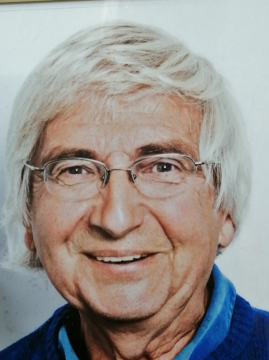 “The 20th March 2025 was the 66th anniversary (yes sixty-six) of my first performance in Mahler 8 as part of the “Chorus of Blessed Boys” in the Royal Albert Hall where we stood alongside 781 other performers in front of an audience of 6,500!
“The 20th March 2025 was the 66th anniversary (yes sixty-six) of my first performance in Mahler 8 as part of the “Chorus of Blessed Boys” in the Royal Albert Hall where we stood alongside 781 other performers in front of an audience of 6,500!
The BBC had underspent their budget that year and gone for the most expensive work to stage in order to avoid cuts the following year. The 145 strong orchestra was the London Symphony Orchestra including Neville Marriner (2nd violin) and future world class soloists James Galway (piccolo) Barry Tuckwell (horn) and Gervase de Peyer (clarinet). The conductor was Jascha Horenstein who was born 13th of 16 children to a Jewish family in Kiev. They were forced to leave following the pogrom of 1905 and went via Vienna to Berlin where Horenstein developed a successful conducting career under the wing of Furtwangler.
This 1959 concert was the first stereo music performance transmitted by the BBC and it used a single stereo microphone. The recording was issued 40 years later on CD in 1999, and in 2015 Pristine Audio offered an XR remastered edition (presumably for those who don’t like tape hiss and coughs). The performance received a mighty standing ovation in the hall, and on CD, and is said to have begun the Mahler boom in Britain.
Like Haitink and Jurowski, Horenstein lets the music flow naturally without feeling the need to reinforce Mahler’s changes of mood. I have to admit to feeling disappointed by the boys choir I was part of – perhaps we were overawed by the event (there was no tutti rehearsal in the RAH) or could it have been the Orpington Junior Girl singers seated alongside us?
Since then I have sung in Mahler 8 nine times in the Royal Albert Hall, the Royal Festival Hall, St Paul’s Cathedral, Symphony Hall Birmingham and in Paris. Now I’m really looking forward to this next grand edition with Edward Gardner – another to add to my long list of marvellous performances.”
Soprano Tania Stanier joined the LPC in 1988 and sang in the highly acclaimed performances we did with the great Klaus Tennstedt in 1991:
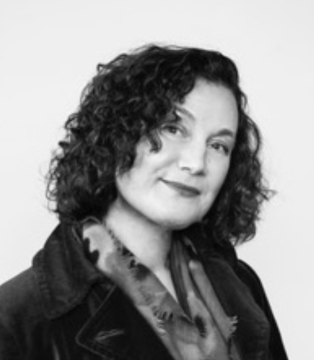 “My membership of the LPC has introduced me to many musical experiences I’ve never had before and Mahler’s Eighth Symphony was one of the most impressive of these. This great ‘Symphony of a Thousand’ appeared on the schedule three years after I joined the choir and we performed it with the LPO, conducted by the wonderful Klaus Tennstedt, alongside the London Symphony Chorus (who we are singing with in this performance) and Eton College Boys Choir – in which, can you believe, a young Edward Gardner was also singing!
“My membership of the LPC has introduced me to many musical experiences I’ve never had before and Mahler’s Eighth Symphony was one of the most impressive of these. This great ‘Symphony of a Thousand’ appeared on the schedule three years after I joined the choir and we performed it with the LPO, conducted by the wonderful Klaus Tennstedt, alongside the London Symphony Chorus (who we are singing with in this performance) and Eton College Boys Choir – in which, can you believe, a young Edward Gardner was also singing!
Longer standing members at that time enthused and shared stories about this work and how lucky they’d been to sing and record it previously with Tennstedt and the Tiffin Boys’ Choir, whose Chorus Master at the time just happened to be Neville Creed, our current chorus director. That performance won the Gramophone Record of the Year award.
When it comes to preparing for a concert, I’ve always enjoyed the first concert venue tutti rehearsal. Starting as soon as you walk into the Royal Festival Hall through the artists’ entrance, the frisson and expectation builds from this very moment towards the grand finale – the performance itself. In this magical Mahler 8 performance I unexpectedly found myself sitting on the front row of a huge ensemble, completely surrounded by amazing choral and orchestral sounds. It was a surreal and wonderful moment for me.
My stand out musical memory is the Chorus Mysticus at the end of Part II. The orchestra starts a gradual diminuendo and rallentando before we finally enter with the very, very hushed dynamic of ppp – Klaus always wanted this to be impossibly quiet. In rehearsals we would take a breath and just as we were about to ‘hum’ or sing he’d stop us and say, ‘too loud’. Also we had to execute this moment sitting which is quite difficult technically, but once it works it’s absolutely wonderful. The sound envelops you and is quite emotionally overwhelming. For each performance, as Klaus made his way towards our entry, you could feel a heightened expectation and holding of breath in the surrounding singers, preparing to achieve this impossible quietness – and as we did, each time, we knew we were part of a very, very special moment. What a privilege.”
For Mia Hobson, a young 2nd alto who only joined the Choir in September 2024, singing Mahler 8 is a totally new experience:
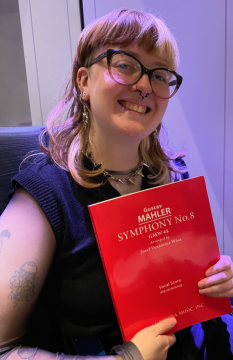 “I really can’t wait to sing this amazing piece and it’s such a privilege to be singing it with the LPC, alongside the LSC and Tiffin Boys’ Choir, it’s really, really cool. I feel as if I’m joining a piece that has a lot of history both in terms of the choir and the music itself. It’s so dramatic and starts so strongly by calling for a creator to come to help and save us. At the moment times are difficult for all of us, so despite this piece being more than 100 years old, it feels particularly relevant to the present and to me.
“I really can’t wait to sing this amazing piece and it’s such a privilege to be singing it with the LPC, alongside the LSC and Tiffin Boys’ Choir, it’s really, really cool. I feel as if I’m joining a piece that has a lot of history both in terms of the choir and the music itself. It’s so dramatic and starts so strongly by calling for a creator to come to help and save us. At the moment times are difficult for all of us, so despite this piece being more than 100 years old, it feels particularly relevant to the present and to me.
The initial rehearsals have been a bit of a practical challenge for me as I’ve never sung a work with so many parts and soloists, so simply reading the score and working out where I am on the page, before I even start to sing, is a bit tricky. As you can imagine, I’m having to do a lot of highlighting to get to grips with it – so it’s going to be really interesting to see how it all comes together in the end.
The fact that we have a theatre director, Tom Morris, working with us on this piece is very exciting for me too and makes me feel much more connected to the work as we’re not just singing the notes but also learning so much about what’s really going on within the piece, and preparing to put on a whole big performance with special lighting and animations as well.
I have a theatre degree and am really interested in theatre directing so seeing this world coming together with classical music is particularly exciting for me because I really believe that classical music can express so much and the theatrical side of that will enhance this in the performance. Working in this way also makes Mahler 8 feel super contemporary and relevant, despite it being an older piece – I’m finding it expresses quite a lot of what we need right now in the world in terms of help and guidance, which is really beautiful and inspiring.”
Contemporary and relevant was exactly what the Southbank Centre and Edward Gardner had in mind when they decided to bring in a theatrical directing team led by Tom Morris, in order to help reach out to a wider and more contemporary audience.
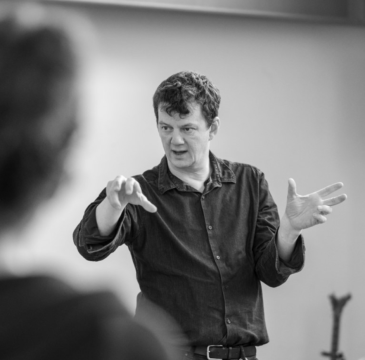
Tom is a highly experienced and successful theatre and opera director who, among many other impressive roles, was Artistic Director of Bristol Old Vic from 2009 to 2022, is an Associate Director at the National Theatre, has two honorary doctorates, an OBE for services to Theatre and has directed operas for English National Opera, Scottish Opera and the Vienna State Opera.
“The Southbank Centre asked me to come in and do a version of what I do when I’m working in opera or with classical musicians, which is what I did with the Bristol Proms for example – using theatre production ideas in a more informal setting than theatre, so we also have a lighting and projection artist to help add dynamism and additional visual aesthetics to this extraordinary music.
To me, Mahler’s music is completely dynamic and written in 3D so, as a director, that is what I have in mind as I’m working with the artistic team, including Edward Gardner, the orchestra, the soloists and the three choirs of course. My intention is to help create something living, present and relevant which completely surrounds and includes everyone; something that tells the fullest story possible of this remarkable piece.
At the opening of the piece the choir is part of a community canting an ardent prayer, pleading for help for everyone, so we’re immediately and absolutely in the present moment with this communal and desperate cry. The energy and direction of the music suits the desperation and urgency of this prayer which is asking for our spirits to be inflamed with light and for love to be poured into our hearts in order to drive the enemy away. The dynamism of this opening prayer sets the tone for the entire symphony.
Far from being separate to the choir, our magnificent octet of soloists are part of a team with them, rather like a relay, taking over to add their pleading voices and then interweaving backwards and forwards with them throughout the symphony. The singers being connected with the orchestra is also critical so we’re working towards visual interactions between all of the performers which will be aided by the lighting and projections. When the choir and singers focus and concentrate in this way it’s so powerful and this is all going to add greatly to what is no doubt going to be a very special, dramatic and memorable performance.”
It’s at this point we would usually invite you to come and hear this special performance but as the concert has been sold out since last October that’s going to be almost impossible, unless you already have a ticket. However, you can still hear us – and the London Symphony Chorus – singing together with the LPO in another “highly acclaimed and most impressive” performance which we gave in 2017, conducted by the LPO’s Conductor Emeritus, Vladimir Jurowski KBE, as a recording of this performance has recently been released by the LPO on their own label.
So whether you’re fortunate enough to be joining us in the Royal Festival Hall on April 26th or sitting comfortably at home wherever you may be in the world, listening to this excellent recording, we hope you enjoy Mahler’s great 8th Symphony which runs the musical gamut from the small and deeply personal, to some of the loudest, grandest, most epic and mystical moments ever conceived on the concert stage.
Our next concert
Saturday 26th April 2025
7.30pm, Royal Festival Hall
Edward Gardner conductor
Sarah Wegener soprano
Emma Bell soprano
Jennifer France soprano
Christine Rice mezzo-soprano
Jennifer Johnston mezzo-soprano
Andrew Staples tenor
Tomasz Konieczny bass-baritone
Derek Welton bass-baritone
London Philharmonic Orchestra
London Philharmonic Choir
London Symphony Chorus
Tiffin Boys’ Choir
Mahler Symphony No. 8 (semi-staged)

